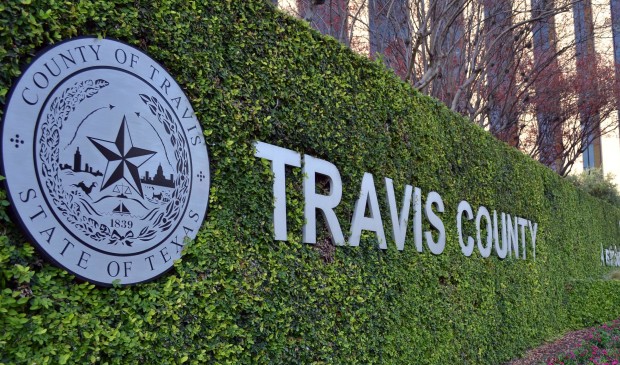Public defender office task force off to a slow start
Wednesday, October 24, 2018 by
Ryan Thornton Having decided to establish a public defender office in Travis County, the Commissioners Court now faces the task of organizing the preliminary steps to begin that process. After a recommendation to the court last Tuesday in a report from the Texas Indigent Defense Commission, the court decided to create a working group of people with diverse backgrounds and professional experiences to respond to the TIDC report and make recommendations concerning the public defender office.
The concept of the working group itself, however, has already presented several challenges to the court regarding what exactly the group should be and how it might function. The court attained some clarity about the group in Tuesday afternoon’s voting session but ultimately decided to proceed in forming the group despite a handful of lingering questions.
Because the public defender will be representing a vulnerable population – predominantly low-income minorities who are often poorly represented by court-appointed legal defense – the representation within the group is a major concern. It would ideally comprise legal experts from the community that are particularly sensitive to the specific predicament of those caught in a legal battle without the means of hiring their own defense.
Commissioner Brigid Shea emphasized that the group will be representing members of a population who are not only unable to pay for proper representation but are also routinely targeted by the criminal justice system.
To address the nuances involved in understanding how the indigent are not being properly represented and how they can be properly served by a public defender office, County Judge Sarah Eckhardt articulated eight different categories of individuals – each represented by at least one group member – to draw from in forming the group to ensure that its expertise is as broad and relevant as possible. The categories are: clients accused of a crime, families of clients accused of a crime, advocates for clients and families, public defenders, contract or managed defenders, private practice defenders, retired judiciaries and persons with academic expertise.
At least two group members will therefore be able to vote and provide recommendations to the court based on personal experience with the criminal justice system.
“It’s important to have folks that give us their experience and give us some insight into things that don’t commonly occur to us because we’re not in those circumstances,” said Commissioner Jeff Travillion, speaking of the importance to involve families of the accused as well as the accused themselves.
Between the clients and their families and the professional legal community is the third category of advocates of clients and families, which may or may not be defenders or legal professionals as well. Eckhardt mentioned a variety of local nonprofits, such as the Texas Center for Actual Innocence, Austin Interfaith and Grassroots Leadership, who could potentially be represented in the working group. With a limit of 13 individuals in the group, however, only one or two organizations could feasibly be represented.
On the other hand, it’s possible that people falling under one of the other categories are also involved in advocacy groups, thereby increasing the number of advocates in the group.
“We also have some former public defenders from other jurisdictions who variously are in academia or in some of these other advocacy groups so they might actually double-dip, frankly, which is not a bad thing,” said Eckhardt.
There was considerable debate over the need for a private practice defender category due to the inherent competition between public and private defenders for clients. Capital Area Private Defender Service currently handles all defense cases in Travis County and has been criticized for not giving proper attention to indigent defense in favor of striking plea bargains to earn more money. The local private defense bar has therefore spoken out against the creation of a public defender, arguing that with more funding they could do a better job defending the indigent.
“Financially speaking, CAPDS is going to lose 30 percent of their business,” said Trudy Strassburger, senior counsel for the Justice Collaborative and former deputy director of CAPDS.
Strassburger argued that if private defenders must be represented in the working group, it makes more sense if they are non-voting members due to their inherent conflict of interest.
Commissioner Gerald Daugherty and Eckhardt both countered Strassburger’s concern, stressing the need for true diversity of opinion within the group to maintain credibility and achieve the best outcome.
Roger Jeffries, county executive of Justice and Public Safety, suggested hiring a neutral mediator to facilitate discussion at group meetings.
With the categories agreed upon, Eckhardt will send out the charge again this week and move forward with the search for working group members.
The Austin Monitor’s work is made possible by donations from the community. Though our reporting covers donors from time to time, we are careful to keep business and editorial efforts separate while maintaining transparency. A complete list of donors is available here, and our code of ethics is explained here.
You're a community leader
And we’re honored you look to us for serious, in-depth news. You know a strong community needs local and dedicated watchdog reporting. We’re here for you and that won’t change. Now will you take the powerful next step and support our nonprofit news organization?










